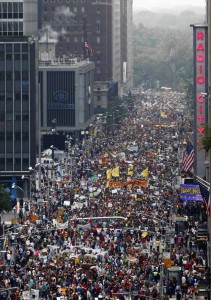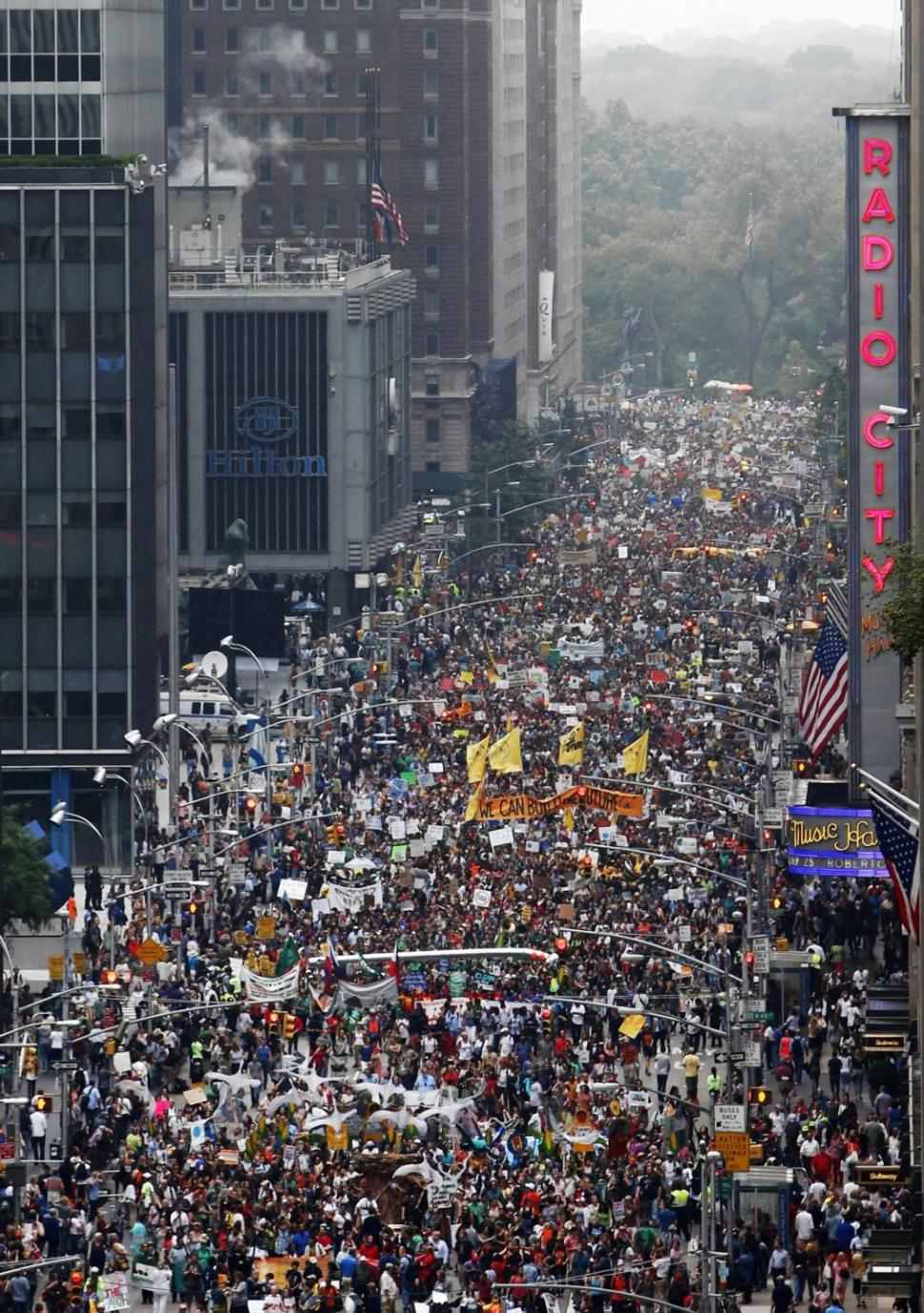Political and religious leaders, progressive businesses, and most importantly, people from all walks of life have spoken with one voice: calling for immediate and ambitious climate action. The Peoples’ Climate March in New York, and associated events across the world, sent a clear call to all governments that they need to step up, phase out fossil fuels and massively scale up renewable energy. It’s a huge task, but ECO thinks that negotiators here in Bonn can take concrete steps forward.
First of all, negotiators should start by strengthening their pre-2020 commitments on mitigation and finance. That is unless we want to renegotiate the terms of the 2015 agreement and make it 4°C-compatible? ECO thinks not.
Secondly, they need to create the space for ambitious INDCs in the post-2020 agreement by negotiating the backbone of UFIs, or ‘Upfront Information’, requirements. ECO has long been calling for these UFIs to set meaningful and concrete benchmarks for ambition and equity. It’s now crunch time. The key elements that need to be discussed in Bonn and agreed at the Lima COP are outlined below:
Soon, soon, soon!! While INDCs are going to be nationally determined, they are contributions towards a global effort. These contributions should be measured against a country’s fair share, and they should measured well before Paris. That’s why it’s crucial for the INDCs of all developed countries and developing countries with equivalent capability and responsibility to come in early, and at the latest by March 2015, so they can be reviewed in light of equity and ambition. This equity review will determine whether collectively these nationally determined contributions set us on a climate-safe trajectory. It will also show us if what each country has proposed is equitable and fair in relation to the requisite global effort and respective capability and responsibility. It’ll encourage countries that fall short of what is required to increase their ambition before Paris.
Short, sweet and upwards! There is an imminent threat that at the end of this week that the EU will adopt a woefully inadequate 2030 energy and climate package. ECO can only (re)emphasise the need for the EU to raise its ambition levels and to support universal 5 year commitment periods, in order to avoid locking in low ambition for the next 16 years. Commitments should run from 2020-2025 and increase (drastically) after that. ECO says: no backsliding!
Lots and lots! Developed countries have yet to understand that providing climate finance is as much part of their fair share of global efforts as their own mitigation contributions. ECO suggests that the Paris agreement include new collective targets for the provision of public finance. These collective targets will have to be supplemented by individual financial commitments from contributing countries in order to achieve the collective target – and that’s where the INDCs come in: tell us what you plan to do on finance as well as domestic mitigation. ECO is very open-minded on the scope: countries can sign checks AND they can shift money domestically away from fossil fuels towards the good stuff, renewables.
Deal with it! Climate impacts are being felt everywhere and we need to address these impacts, both on the ground, and in the INDCs. Those most affected need to have clarity on the global adaptation response. They will also need to be able to measure if the progress being made on adaptation is sufficient to deal with climate impacts that are already evident, as well as impacts likely to be faced in future.
In the wake of last month’s public demand for much greater action on climate change, what’s needed is clear: real progress on all of these fronts by governments and their negotiators, right here, right now.
![]()
![]()
![]()
![]()

